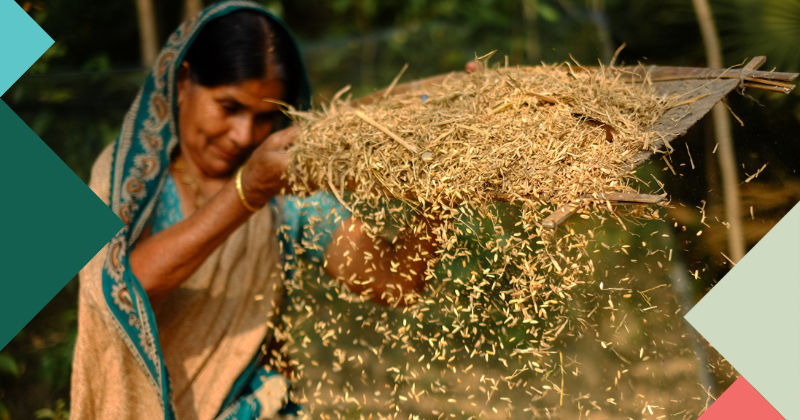The Gates Foundation and the UK Foreign Commonwealth and Development Office (FCDO)’s Agricultural Research Partnership aims to advance equity, food security and systemic research and impact in Africa and South Asia. It combines the Gates Foundation’s technical expertise and innovation leadership with FCDO’s development priorities, geographic reach, and flexible funding mechanisms.
Our evaluation of the partnership comes at a pivotal moment; as the current collaboration framework approaches its 2026 conclusion, this evaluation provides a timely opportunity to reflect on nearly a decade of joint investment, innovation and learning.
We seek to understand how the partnership has evolved, what it has achieved and how its operational mechanisms have contributed to its outcomes.
This work will not only inform the future of the Gates-FCDO partnership but also provides insights that can be applied across sectors and geographies.
Ultimately, it tells a story of how partnerships, when thoughtfully designed and executed, can amplify impact and unlock solutions to some of the world’s most pressing problems.
Our role
Our evaluation assesses the partnership’s effectiveness, impact and added value in advancing agricultural research and innovation (R&I) to address food security, nutrition, and climate resilience in Africa and South Asia.
It also examines how well the partnership addresses priorities such as equity and inclusivity.
The evaluation is guided by five core focuses:
1. Understanding the partnership’s evolution
How has the collaboration adapted to shifting priorities, expanded its scope and responded to global challenges?
2. Identifying the advantages of each partner
How have the unique strengths of each partner been combined to create added value?
3. Assessing the partnership’s impact
What tangible outcomes (new technologies, policy change etc.) and intangible benefits (convening power, influence etc.) has the partnership brought? What is the value for money of the joint investments?
4. Exploring how the partnership has supported impact
What mechanisms have enabled success? How have principles of equity, inclusion and legitimacy been embedded in the work?
5. Informing future opportunities
What are the strategic directions for the next phase of the partnership? How can it build on momentum, address emerging challenges and scale successful approaches?
Methods and approaches
Focusing on both developmental outcomes and operational mechanisms, the evaluation assesses how elements such as secondee roles, co-funding models, and adaptability to sectoral shifts have enhanced collaboration.
Evaluation methods included:
Theory of change development
A key focus of the evaluation is on sustained research and development (R&D) over the long term.
We co-created a partnership-level theory of change to map how the collaboration drives impact, from research investments to real-world outcomes.
This framing shifts focus from sectors to problem-solving and considers the broader orchestration of R&I investments, experts, and initiatives. It captures the partnership’s role in leadership, visibility, and mobilising investments.
The ToC maps R&I impact pathways, from commissioning mission-led projects to coordinating investments and scaling agricultural and health technologies. It also enables retrospective analysis of R&I investments, aligning them with mission principles and prioritising research quality.
Qualitative methods
We have combined qualitative methods, including:
- Key informant interviews with stakeholders from FCDO, Gates Foundation, grantees, and partners.
- Document and portfolio reviews to assess financial flows, strategic alignment, and project outcomes.
- Case Studies and Impact Briefs
We also conducted deep dives into selected projects to understand how the partnership contributed to tangible and intangible impacts, such as policy influence, innovation uptake, and equity outcomes.
Coding and analysis
Using a structured coding framework, we analyse data for patterns, strengths, and areas for improvement.
Collaborative learning
We are holding workshops with stakeholders to validate findings, co-create recommendations, and ensure the evaluation supports future decision-making.
Outcomes and impact
Ultimately, this evaluation supports adaptive learning and strategic decision-making, ensuring that future investments are grounded in evidence and aligned with the evolving challenges of global development.
The evaluation highlights how coordinated, long-term R&I investments can drive transformative change. It also emphasises the importance of equity, inclusivity, and positioning research for real-world use.


